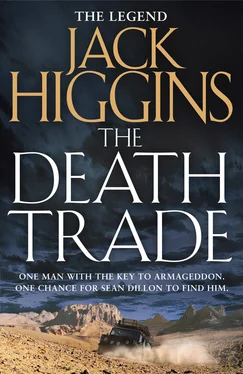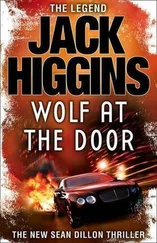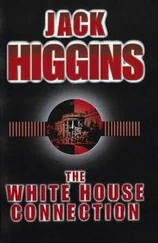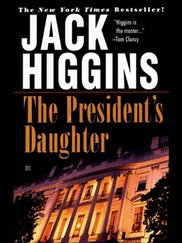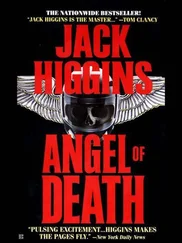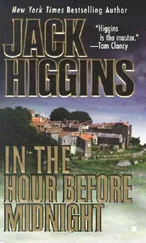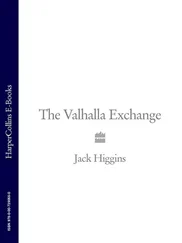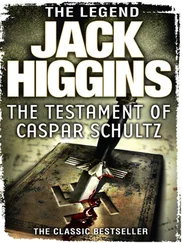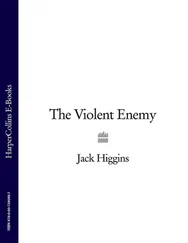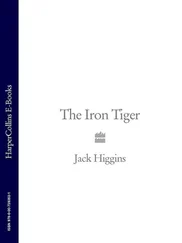JACK HIGGINS
THE DEATH TRADE
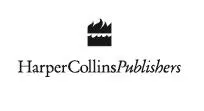
In Memory of My Dear Friend
David Coleman
Above all things, cherish life while you can, for death is serious business.
–SUFI SAYING
Table of Contents
Cover
Title Page JACK HIGGINS THE DEATH TRADE
Dedication In Memory of My Dear Friend David Coleman
Epigraph Above all things, cherish life while you can, for death is serious business. –SUFI SAYING
Hell On Earth: Houla Syria HELL ON EARTH
Chapter 1
Two Weeks Earlier: Nantucket London
Chapter 2
Chapter 3
Chapter 4
Paris
Chapter 5
Chapter 6
Sahara: Algiers London
Chapter 7
Majorca: Algeria
Chapter 8
Chapter 9
London: Iran Beirut
Chapter 10
Chapter 11
Chapter 12
St Anthony’s Hospice: Saudi Arabia
Chapter 13
London
Chapter 14
Also by Jack Higgins
Copyright
About the Publisher
HELL ON EARTH
The man who called himself Ali LeBlanc surfaced from a deep sleep to cries of anguish, screams, gunfire, exploding grenades, and the roaring of many engines. It was the stuff of nightmare, but rising from the bed above the little café and moving to the window, he saw that this was no dream.
The previous evening he had left Tehran on the night plane to Iraq using his Iranian passport. His shabby canvas bag had a false bottom containing three passports, and he had chosen the French one for the flight from Baghdad to Aleppo. At an extortionate price, he had obtained a hire car to take him to Homs, and from there he intended to cross the border and proceed to Beirut. Its population of two million, its multiplicity of races and religions, would swallow him up. His Lebanese passport in the name of Ali LeBlanc indicated that he was of mixed French–Lebanese parentage, and a doctor, which was true enough, although he had not practised for some years.
He wore a dark suit showing signs of wear. He was sixty-four years old and seemed older, his eyes tired, his white hair uncut. Age had caught up with him, as well as the strain of travelling in the war-torn country, and he had stopped to rest at the café in the small town of Houla. As he stood by the window, the door opened and the café owner, Hassan, rushed in, beside himself with rage.
‘Stay back from sight. It’s a butcher’s shop out there.’
LeBlanc peered carefully from behind the curtain and was horrified by what he saw. Cars of every type, and light trucks with machine guns attached, crisscrossed each other, shooting at anyone who moved. Across the square, men and young boys were being lined up against any available wall and machine-gunned. Even the mosque was being used for that purpose. Women were being dragged inside by the hair, their assailants in semi-military uniforms, looking more like brigands than soldiers.
LeBlanc said, ‘Who are they?’
‘They belong to an organized gang culture a bit like the Mafia used to be in Sicily. Throat cutters to a man, they think nothing of killing children, the women after they’ve been raped. They’re supposed to be militia. The regular army tolerates them and lets them do the dirty work, which suits the government down to the ground.’ Hassan’s face was wild.
‘So what happens now?’ LeBlanc asked.
‘The doors are bolted, I’ve paid my protection. My wife and two daughters are locked in the cellar.’ He shrugged. ‘There’s not much more I can do. Come down to the kitchen. With what’s going on out there, you won’t have much of an appetite, but there’s coffee and several stronger things under the counter.’
LeBlanc glanced out of the window. The shooting had abated considerably. Most of the vehicles had roared away, the men in them laughing and shouting to each other, with only the odd shot in the distance. ‘No one moaning in pain, not a sound out there,’ LeBlanc said.
‘The bastards take pleasure in finishing everyone off,’ Hassan told him, leading the way downstairs and into the kitchen.
There was an eerie quiet, the aroma of good coffee from an electric percolator, an old AK-47 assault rifle lying on the table. Hassan went into the café and returned with a bottle of Courvoisier cognac, LeBlanc put his bag on the table and picked up the rifle as Hassan got the bottle open.
‘May Allah forgive me.’ He raised it to his mouth. At the same moment, the outside door was kicked aside and a brute of a man, bearded, long hair bound by a bandanna, slipped in. He was carrying a Mac 10 machine pistol.
‘Drop it or I’ll drop you,’ he told LeBlanc, who placed the AK-47 on the table at once.
‘Of course,’ he said.
The man reached for the bottle. ‘Cognac, eh? Are we celebrating something your old friend Hamid should know about?’ He poured some into his mouth. ‘Good stuff. Seems a shame to keep it all for ourselves. Why don’t you let your wife and daughters out of the cellar so they can join the party.’
‘No, damn you, I will not do it,’ Hassan said violently.
Hamid raised the Mac, and LeBlanc cried, ‘No need for that! I have money, see?’ He unzipped the bag, reached into the false bottom, produced a wad of currency, and dropped it on the table. ‘A thousand American dollars.’
Hamid was mesmerized and reached out to examine the money for himself. ‘Where did you get this?’
‘Tehran,’ LeBlanc told him. ‘And there’s more. Just let us go.’
‘Show me,’ Hamid ordered.
LeBlanc scrabbled in the bottom of the bag, but instead of pulling out more money, he produced a Russian Makarov fitted with a silencer and shot Hamid between the eyes, fragmenting the back of his skull and hurling him outside into the street through the open door. A dull thud was the only sound.
It was darker now, starting to rain on the dead, and Hassan kicked Hamid’s body. ‘Bastard,’ he said, picked up the corpse by its long hair, and dragged it out to where the rest of the bodies lay.
He turned to LeBlanc, who had followed, and grabbed him in a huge embrace. ‘How can I repay you?’
‘That your wife and daughters are safe from harm is thanks enough. It was fortunate I had the pistol. Normally I wouldn’t have such a thing, but it seemed prudent when I started my journey. These are bad times, and more to come, I think.’
‘Then go with a blessing from me,’ Hassan said. ‘Now I must join my family.’ He returned to the café and closed the door.
When LeBlanc checked the yard at the rear, he found the Citroën intact. He found a tap and washed away the blood that had splashed across his face as Hamid’s skull exploded, using a scarf he found in the car, then checked the contents of the bag. A little blood he had missed on his left hand smeared the Iranian passport, and that gave him an idea. What if his Iranian passport, his true identity, turned up on one of the victims in the street, a body so damaged it could not be identified? He got in the Citroën and drove across the square to the mosque.
The piles of bodies were truly shocking, and there were many badly damaged faces. As the rain increased, he knelt beside one old man, smashed beyond recognition, his white hair soaked in blood. He felt in the man’s inside pockets, removed a couple of letters and an identity card, smeared the Iranian passport with the dead man’s blood, and put it in the pocket. He said a short prayer, returned to the Citroën, and started on the road towards Homs, passing many refugees and a small group of United Nations observers in their blue helmets.
Читать дальше
